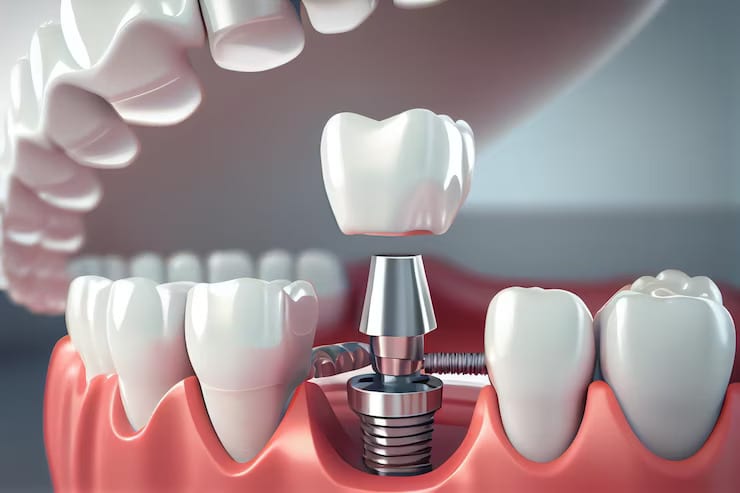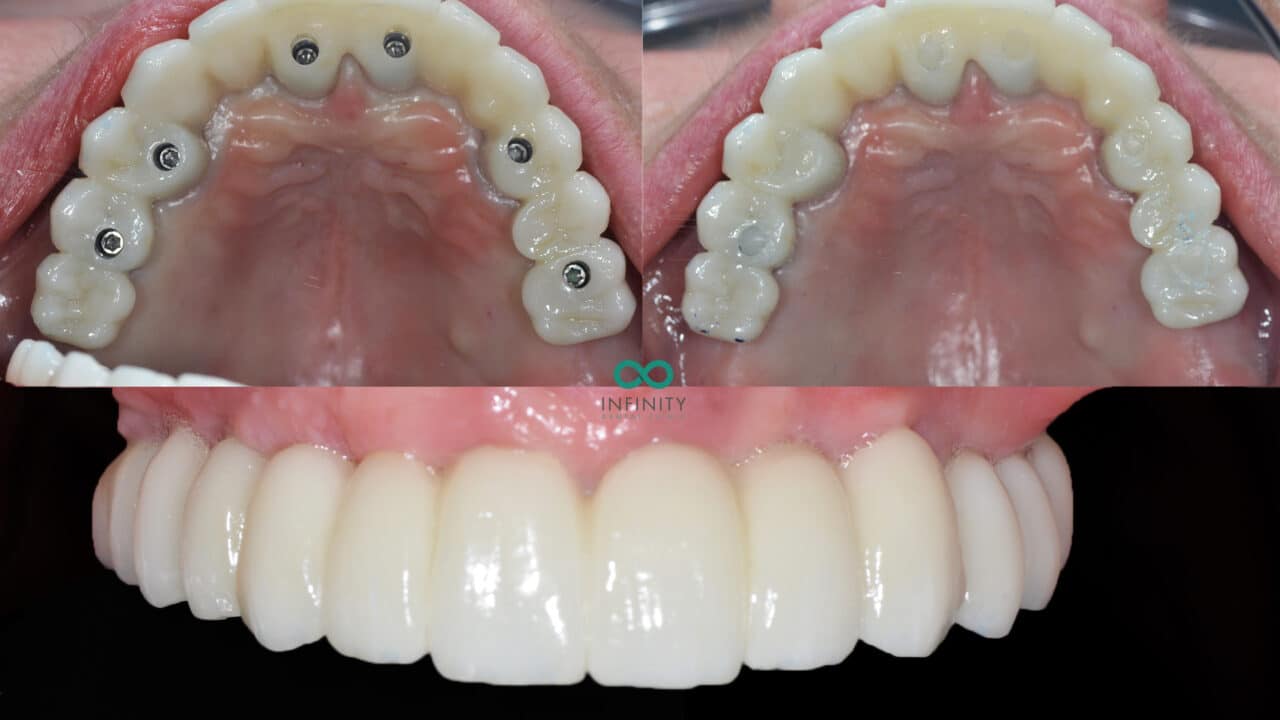Dentist Sunbury OH Types of Dental Implants
Dental implants have emerged as a popular alternative for people seeking a long-term solution to tooth loss. One important side of understanding dental implants includes their effect on adjacent teeth. This is particularly important for making certain the health and longevity of the whole dental structure.
When a dental implant is placed, it mimics the operate of a natural tooth root. By doing so, it helps preserve the integrity of the encompassing bone structure. Natural teeth rely on a balanced, interconnected system for support, and dental implants can contribute positively to that dynamic. The stability provided by the implant allows for higher distribution of chew forces, which can prevent undue stress on adjacent teeth.
Orthodontics Galena OH Dental Implant Types: Choosing the Right Solution
In circumstances where a tooth is missing, the neighboring teeth may shift into the vacant area. This shifting can result in misalignment and varied other complications. By putting a dental implant, the chance of this shifting is reduced, as the implant acts as a placeholder that preserves the natural alignment of surrounding teeth. This preventive impact is crucial for long-term oral health and performance.
Another necessary consideration is bone loss. When a tooth is lost, the jawbone in the area can begin to deteriorate due to an absence of stimulation. Dental implants help prevent this bone loss by providing the required stimulation to the jawbone, very similar to a natural tooth root would. This preservation of bone not only supports the implant itself but in addition contributes to the steadiness of adjacent teeth.
The kind of fabric utilized in dental implants, usually titanium, has a novel property of osseointegration, that means it fuses with the bone over time. This integration supplies a sturdy basis for the bogus tooth whereas guaranteeing that the implant doesn’t negatively affect surrounding constructions. As the implant integrates, it creates an setting that contributes positively to the health of the adjacent teeth.

Regular dental check-ups play an important function in monitoring the impression of dental implants on adjacent teeth. Professional assessments can help determine any points that may arise, guaranteeing prompt treatment and maintaining the health of the complete dental arch. These evaluations would possibly include X-rays to examine for bone density and the general condition of the implant and surrounding teeth.
Dental Clinic Sunbury OH Full Mouth Dental Implants: An In-Depth Overview
Oral hygiene practices are vital for people with dental implants. Proper brushing and flossing habits not solely contribute to the longevity of the implant but in addition ensure that adjacent teeth stay wholesome. Food particles and plaque that accumulate around the implant can cause problems, together with peri-implantitis, an inflammatory condition that can have an effect on surrounding teeth and tissues.
The positioning of dental implants can influence the health of adjacent teeth. If an implant is positioned at an angle or not properly aligned, it may result in increased pressure on neighboring teeth. This misalignment may cause wear and tear on adjacent enamel, doubtlessly leading to cavities or other dental points. Therefore, the talent and experience of the dentist performing the implant process are paramount in attaining a successful consequence.
In some situations, further procedures may be essential to arrange the encompassing area for an implant. Bone grafting or sinus lifts can help create a greater surroundings for the implant. While these procedures are aimed at enhancing the positioning for the implant, additionally they serve to protect the health of adjacent teeth by making a extra stable basis.
Johnstown Dental Alexandria OH The Advantages, Risks, and Insurance for Dental Implants

As dental expertise evolves, advancements in implant strategies result in better outcomes. Improved imaging methods and computer-aided design allow for extra precise placements that decrease risk to adjacent teeth. With these advancements, the chance of problems that could come up from improperly placed implants diminishes considerably.
Post-operative care also performs a critical position in ensuring that adjacent teeth stay unaffected. Patients must adhere to the dentist's directions regarding food regimen, oral hygiene, and follow-up visits. Neglecting these guidelines may lead to problems that impact not only the implant but additionally the neighboring teeth.
Dental Implants Galena OH Step-by-Step Guide to Dental Implant Procedures
In conclusion, dental implants, when placed appropriately and cared for correctly, have the potential to boost the health of adjacent teeth quite than detract from it. They keep alignment, stimulate bone development, and supply a safe foundation that supports the complete dental structure. Understanding how dental implants affect adjacent teeth emphasizes their significance as a long-term tooth replacement resolution. With steady advancements in know-how and methods, the mixing of dental implants into restorative dentistry is turning into increasingly successful, ensuring healthy and practical smiles for years to come back.

- Dental implants prevent adjacent teeth from shifting into the gap created by a missing tooth, serving to to maintain up correct alignment within the mouth.
- The rebuilding of the jawbone through an implant can stimulate surrounding teeth and maintain them wholesome by offering necessary bone density that might otherwise diminish.
- Adjacent teeth profit from the stabilization that dental implants present, reducing the risk of wear and tear from misalignment throughout chewing.
- Implants can defend adjacent teeth by acting as a framework, which can distribute chew forces evenly across the dental arch as a substitute of inserting undue stress on neighboring teeth.
- When positioned correctly, dental implants minimize the risk of gum disease which may have an result on adjacent teeth by sustaining a clear and wholesome gum line.
- The presence of an implant can facilitate an improved oral hygiene routine, as it eliminates the need for bridgework that could trap food particles around adjacent teeth.
- Regular dental check-ups can reveal how properly the implant integrates with surrounding buildings, making certain ongoing health for adjacent teeth.
- Implants can prevent the natural means of bone resorption that occurs after tooth loss, positively impacting the steadiness and longevity of adjacent teeth.
- The use of dental implants may scale back the need for extra invasive procedures in the future, providing a long-term answer that maintains the structure of the whole dental arch.
- Successful integration of an implant into the dental arch enhances general oral perform, often resulting in improved confidence and oral health for adjacent teeth.undefinedHow do dental implants affect adjacent teeth?
What impact do dental implants have on the alignment of adjacent teeth?
Dental implants generally prevent the shifting of adjacent teeth, serving to to take care of correct alignment. This stability can cut back the danger of creating chew issues over time.
Can dental implants cause harm to close by teeth?
When positioned appropriately by a professional professional, dental implants should not harm adjacent teeth - Dental Care Condit OH. However, improper placement or inadequate planning could result in problems
Dental Center Granville OH Permanent Dental Implants
Do dental implants require any special care concerning adjacent teeth?
Maintaining good oral hygiene is crucial. Surrounding teeth must be brushed and flossed frequently, and routine dental check-ups will help be sure that both the implants and adjacent teeth remain wholesome.

Will read dental implants impression the health of my why not try these out surrounding teeth?
Dental implants can improve the health of surrounding teeth by distributing bite forces evenly, decreasing put on and tear. Additionally, they'll prevent bone loss within the jaw, which can affect adjacent teeth.
Premier Dental Condit OH Dental Implants: Options, Costs, and Care
Are there any long-term results of dental implants on nearby teeth?
Long-term, dental implants may help protect the health of adjacent teeth by preventing shifting and potential gum points, in the end contributing to raised oral health overall. - Dental Care Associate Centerburg OH
Can gum problems arise round adjacent teeth after getting implants?
If proper dental care is uncared for, gum points may develop round both the implants and adjacent teeth. Following post-operative care directions is important to reduce these risks.
Mono Dental Implants Alexandria OH The Best Dental Implant Services
How do dental implants compare to bridges when it comes to adjacent teeth?
Dental implants are sometimes helpful as they don’t require alteration of adjacent teeth, not like bridges, which necessitate reshaping of nearby teeth for support. (Premier Dental New Albany OH)
Can I still get cavities in adjacent teeth if I truly have dental implants?
Yes, adjacent teeth can still develop cavities if not properly cared for. Dental implants themselves can't get cavities, but they require vigilant hygiene practices to protect surrounding natural teeth.
What is visit site the success rate of dental implants in relation to surrounding teeth?
The success rate of dental implants is high, but it largely depends on the quality of the procedure and ongoing care. Well-maintained implants usually result in higher outcomes for adjacent teeth as properly.